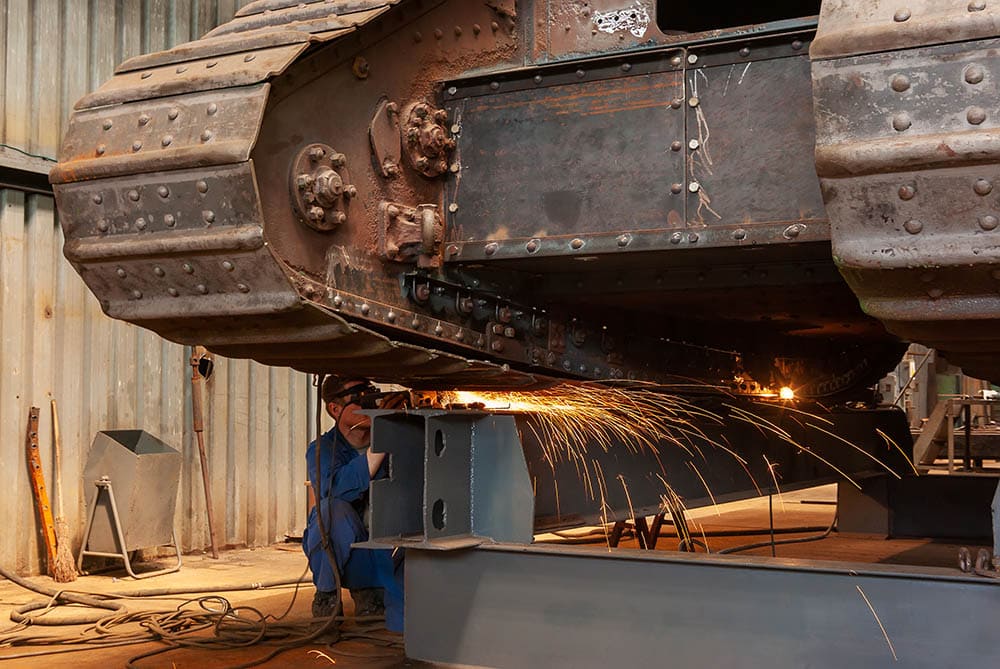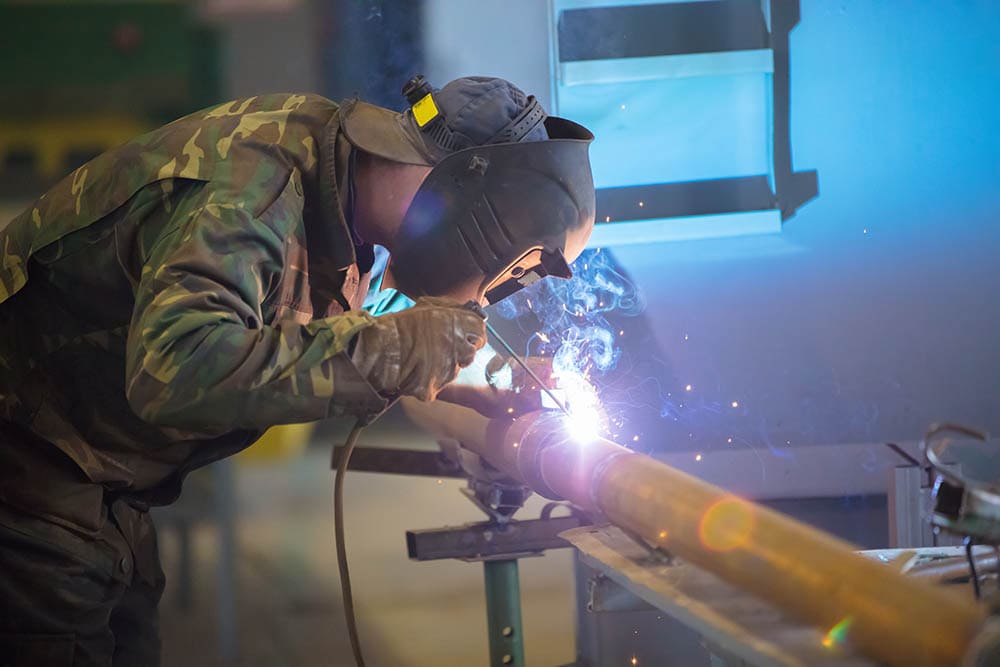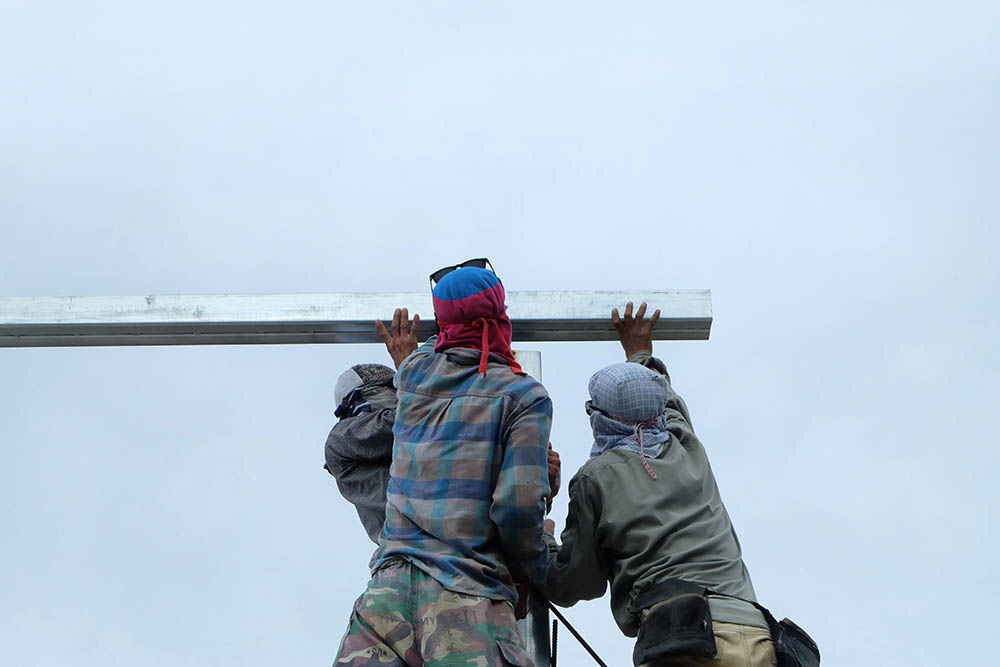How Much Do Military Support Welders Make? 2024 Salary Statistics
Last Updated on

Are you thinking of getting into the welding field? Or are you wondering if you should continue with welding school? The military may be an option for you. If you are thinking about joining the military in support of welding, this job description will give you an overview military welding and the salary statistics.
So, who are military support welders? What do they do? And how much do they make? This article will look at everything you need to know about military support welders.
Let us jump right in!
Who Are Military Support Welders?
Military support welders (MSW) provide welding services in a welding department of the military unit. The welding department may be located in the military unit’s maintenance or repair shop. In addition, it can be in a central maintenance facility for the military unit. The work performed by military support welders include:
- Welding
- Brazing
- Soldering metal parts
Usually, military support welders do a lot of work that other welders cannot do. It takes a lot of skill and the use of large machinery. You also need many parts to make a weapon, even a light machine gun or a helicopter. But military support welders follow directions, build the weapon, weld it, test it, and repeat until it works.
Military support welders usually have decent jobs in factories and tool shops. They also work on ships or at construction sites. Most military support welders work indoors. Others work outdoors, making tanks or helicopters.
Although military support welders build weapons, they do not have anything to do with their use. They do not load the guns, aim them, or even fire them.

Average Salary for Military Support Welders
The average salary for military support welders depends on which region they operate in and the position they hold. The most lucrative areas are generally Southern California. Here, companies pay a top military support welders around $70,000 a year.
Let us now look at the average salaries of military support welders in detail. Most of the data is according to the US Bureau of Labor Statistics.
How Much Do Military Support Welders Make Hourly?
The military employs between 75,000 and 100,000 support welders. On average, each welder makes about $23 per hour. However, each welding job in the military is different. Therefore, you can make $18 an hour on a tank, or you can make $25 an hour on an aircraft carrier.
Daily Earnings
The Bureau of Labor Statistics keeps statistics on support welders in the military. The BLS states that the median pay for support welders in the military is $184 per day.
The BLS also states that the average salary for welders in the private sector is $150 per day. Support welders in the military make 14 percent more.
Weekly Earnings
Military support welders are paid about $900 to $2000 a week. But it depends on their seniority and rank.
Monthly Earnings
Usually, military support welders work in teams of two to eight people. They work for eight hours a day, five days a week, and at least 40 weeks a year. According to the US Bureau of Labor Statistics, the average monthly salary of military support welders is $3,950.
Annual Salary
According to PayScale, support welders in the military earn an average of $47,397 a year.
Top 10 Highest-Paying Cities for Military Support Welders in the United States
In the United States, support welders working for the government have some of the highest average salaries. Here, we will look at the ten highest-paying cities for military support welders according to the US Bureau of Labor Statistics.
| CITY | AVERAGE ANNUAL SALARY | AVERAGE HOURLY SALARY |
| Cambridge (Massachusetts) | $56,134 | $26.99 |
| New York City (New York) | $54,442 | $26.17 |
| Sunnyvale (California) | $59,886 | $28.79 |
| San Mateo (California) | $54,074 | $26.00 |
| Vacaville (California) | $55,056 | $26.47 |
| Fairfield (Connecticut) | $54,389 | $26.15 |
| Santa Rosa (California) | $57,888 | $27.83 |
| Anchorage (Alaska) | $53,520 | $25.73 |
| Lynn (Massachusetts) | $53,604 | $25.77 |
| Baltimore (Maryland) | $52,699 | $25.34 |

Do Military Support Welders Receive Bonuses and Benefits?
Military support welders receive bonuses and benefits. Usually, they depend on the type of job the military support welder does for the military. Like most large organizations, the Department of Defense (DoD) rewards employees who perform well.
Bonuses and benefits are one component of compensation. They are awarded to attract, retain, and promote high-performing employees. Bonuses and benefits may be annual, or they may be part of a performance incentive package.
They may include incentives, such as paid time off, premium pay, and employee recognition. The military support welders also receive health care, life insurance, paid vacations, and other benefits.
How Do You Become A Military Support Welder?
There are three ways to become a military support welder. They include:
- Attend an accredited welding program
- Enlist in the military
- Become a military support welder without attending an accredited welding program
Attending an accredited welding program has several benefits. First, you will learn about the different types of welding techniques available such as:
- GTAW (Gas Tungsten Arc Welding)
- SMAW (Shielded Metal Arc Welding)
- GMAW (Gas Metal Arc Welding)
- FCAW (Flux-Cored Welding)
This knowledge will be helpful when it is time to choose the type of welding you want to specialize in.
Another benefit of attending an accredited welding program is that you will learn to weld safely. It is crucial because you will be performing welding in risky environments.
Usually, an accredited welding program is more challenging than the other two methods. You must pass a written and a practical test administered by the American Welding Society. These tests require you to be familiar with welding.
Military Support Welder’s Job Areas
1. Air Force
A military support welder’s job is to repair and fabricate parts using various welding techniques. These parts range from small equipment components to plane parts. The work requires both technical skills and the ability to work with large pieces of metal.
2. Coast Guard
The Coast Guard is a branch of the military. Here, military support welders build and repair military vessels and equipment. They include boats, ships, windjammer vessels, and navigational aids.
They also maintain the vessels’ components. They include engines, generators, navigational systems, galleys, and sleeping quarters.
3. Army
In the army, military support welders provide critical services, such as maintenance and repair work. Military support welders assemble and repair gun turrets, gun mounts, and various spare parts. They also weld steel field fortifications, such as pillboxes, bunkers, and fences.
The daily responsibilities of a military support welder vary. In combat, they perform repairs on vehicles, such as tanks and armored vehicles. In peacetime, they repair heavy construction equipment or aircraft and fabricate field fortifications.
Apart from repairing ships, military support welders are also involved in construction. They construct equipment used by the navy. Military support welders are also involved in underwater construction. In addition, they maintain the underwater pumps and pipelines.
Final Thoughts
In the United States, most people are beginning to embrace military support welding as a career. It is one of the most enticing career paths. Military support welding is an in-demand job that offers job security and fair pay.
Military support welders play a crucial role in keeping military infrastructure functioning well. If you are thinking of following this career path, given the salary statistics above, you are well on your way to earning good money in a profession that you enjoy.
